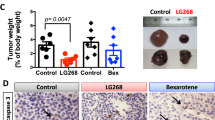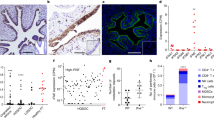Abstract
N-(4-hydroxyphenyl) retinamide (4-HPR) is a synthetic retinoid which reduces the incidence of experimental tumours in animals and has been chosen for its weak toxicity to be tested as a chemopreventive agent in humans. The mechanism of antineoplastic action is still unknown but a possible immunoenhancing effect may be postulated. We investigated the NK activity of PBMC from a group of women treated with 4-HPR as a part of a large scale randomised phase III trial on chemoprevention of contralateral disease in mastectomised women. After 180 days of treatment the NK activity was augmented 1.73 times as compared to that of patients given a placebo. The NK activity of PBMC from 4-HPR treated women is maximised, being higher than the basal and even the rIL-2 or alfa-rIFN stimulated activity of controls. For this reason in the majority of cases it cannot be further augmented by incubation with either rIL-2 or alfa-rIFN in vitro. The increased NK activity of 4-HPR treated women is not due to an enhanced production of endogenous IL-2, because PBMC cultures from patients treated with 4-HPR or placebo, incubated in vitro with a panel of different stimulators (recall antigens, PHA, allogeneic and xenogeneic cells) produce similar amounts of IL-2. The functional activity, but not the number of NK cells is increased in 4-HPR treated women. The mechanism by which 4-HPR stimulates NK activity is not a function of direct action on NK cells. Indeed incubation of PBMC from blood donors with 4-HPR or its major metabolite N-(4-methoxyphenyl) retinamide (4-MPR) does not modify their natural cytotoxicity.
This is a preview of subscription content, access via your institution
Access options
Subscribe to this journal
Receive 24 print issues and online access
$259.00 per year
only $10.79 per issue
Buy this article
- Purchase on Springer Link
- Instant access to full article PDF
Prices may be subject to local taxes which are calculated during checkout
Similar content being viewed by others
Author information
Authors and Affiliations
Rights and permissions
About this article
Cite this article
Villa, M., Ferrario, E., Trabattoni, D. et al. Retinoids, breast cancer and NK cells. Br J Cancer 68, 845–850 (1993). https://doi.org/10.1038/bjc.1993.443
Issue Date:
DOI: https://doi.org/10.1038/bjc.1993.443



